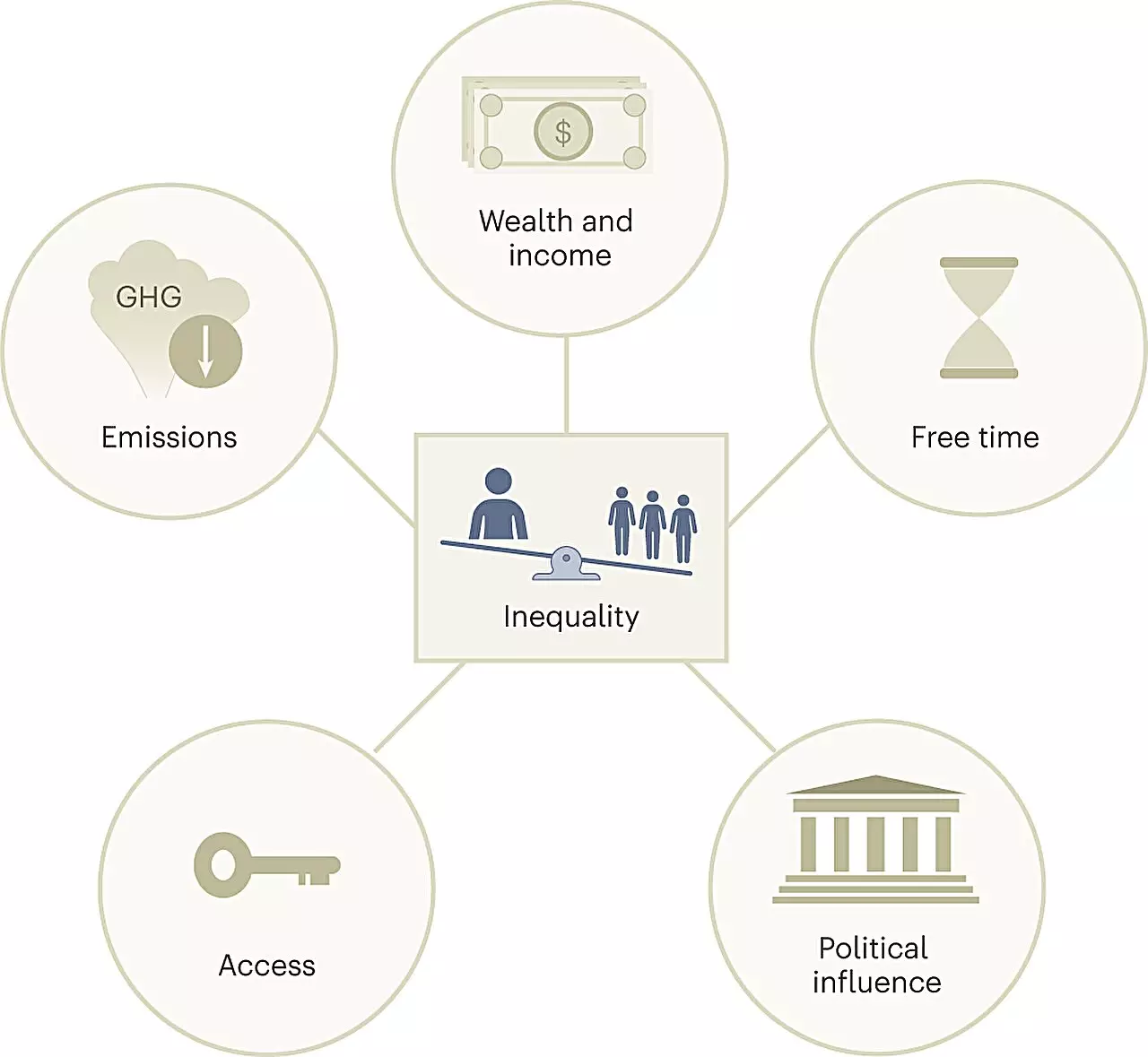In a recent publication in the journal Nature Climate Change, researchers argue that addressing inequality is crucial in achieving global Net-Zero goals. The report emphasizes that for effective climate change mitigation, it is essential to acknowledge and overcome the barriers that prevent individuals from adopting low-carbon behaviors. While wealthier individuals have greater capacity to reduce their carbon footprint, those with lower incomes often face financial, physical, and time constraints. This article examines the importance of tackling inequality in promoting climate-friendly behaviors and suggests policy interventions to ensure equal opportunities for all.
The Impact of Inequality on Low-Carbon Behaviors
The researchers identify several ways in which deep-rooted inequality restricts people’s ability to adopt lower-carbon behaviors. For example, insulating homes can be costly, and government subsidies are typically available only to homeowners, leaving renters with limited control over their living conditions. In countries like the U.K., where older houses are poorly insulated, this creates an increased energy demand for heating. To address this, the researchers propose implementing government schemes that make it more accessible for individuals in lower income groups to reduce their home’s carbon emissions.
Another area of concern is the affordability of plant-based meat alternatives. Currently, these alternatives are often more expensive than animal products, making it challenging for individuals to choose more sustainable food options. The researchers highlight the need to address this discrepancy and ensure that affordable plant-based alternatives are widely accessible to all income brackets.
Eating plant-based foods, as opposed to meat and animal-derived products, is known to be one of the most effective changes individuals can make to reduce their carbon footprint. However, the cost of buying an electric car or bike can be a significant barrier for those on lower incomes. Additionally, individuals without permanent employment may not have access to tax breaks or financing options available through employer schemes. Furthermore, inadequate public transport services, particularly in rural areas, make it challenging for many to choose low-carbon transportation alternatives. These systemic issues must be addressed to provide equal opportunities for everyone to engage in climate-friendly behaviors.
While campaigns that provide information on climate change are valuable, the researchers argue that more needs to be done to overcome the barriers to behavioral change. Merely educating individuals about the importance of low-carbon choices is insufficient when financial, physical, and time constraints hinder their ability to act. Consequently, the report emphasizes the importance of implementing a range of policy interventions.
Promoting Equal Opportunities for Low-Carbon Behaviors
The researchers suggest several policy interventions that can contribute to more equitable opportunities for all individuals to engage in low-carbon behaviors. These include urban planning that prioritizes bus and bike lanes and pedestrian-friendly routes, creating a supportive infrastructure for sustainable transportation options. Progressive taxation rates based on wealth and income can also help address inequality, ensuring that those with greater financial means contribute more to climate change mitigation efforts. Additionally, employers can play a role by subsidizing low-carbon meal options, promoting sustainable food choices in the workplace.
Addressing inequality is vital for effectively mitigating climate change. By recognizing and overcoming the barriers that prevent individuals with lower incomes from adopting low-carbon behaviors, society can support equal opportunities for all. Government schemes, such as subsidies for insulation and affordable access to plant-based alternatives, can help level the playing field. Additionally, urban planning and employer interventions can create an inclusive environment that promotes sustainable choices. It is crucial to move beyond solely providing information and implement comprehensive policy interventions to achieve a more equitable and sustainable future for all.


Leave a Reply